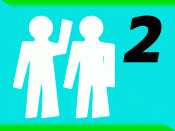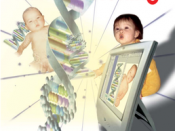In the article " Body Body Double : Cloning Infants a Distant Fantasy " Alexander M. Capron delineates that science has advanced so much that the successful cloning of a sheep encouraged a Chicago physicist Richard Seed to clone human embryos. The purpose behind writing the article was to highlight the shortcomings of human cloning which would lead the Congress to ban it. According to Capron , Seed has no proficiency in the field of cloning. Cloning a human has its drawbacks. The cloning of Dolly shows that all attempts were not successful and many pregnancies resulted in stillborn babies or death after birth. Cloning can also have a psychological effect on the clone. People value criteria such as intelligence, artistic creativity or athletic prowess that are in turn governed by genetic material. The fantasies of having children with these prime qualities may entice parents to seek unreasonable control over children's characteristics and to value them for meeting these expectations.
In spite of its drawbacks cloning could be favorable to parents who want to fill a void in their life by replacing a deceased child with a clone. Infertile couples could gain from cloning by having a child who is genetically linked to at least one parent. But the drawbacks overweigh the advantages. Medical scientists are also against the prospect of cloning humans. According to Harold Varmus a director of the National Institute of Health, cloning is "repugnant". Ian Wilmut the creator of Dolly , agrees that cloning is "quite inhuman". Capron believes that even if Seed is sidelined in the utmost development of the cloning technology, his declaration should prod the Congress to take action. Through his article Capron wants a well-informed public congruence to yield a restrictive system, which is virtuously defensible and pragmatically enforceable to oversee human...


